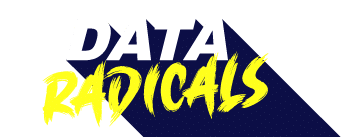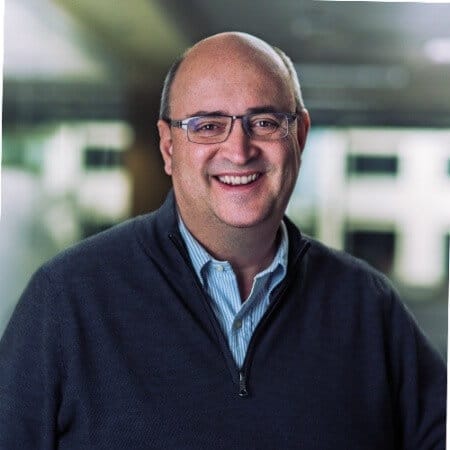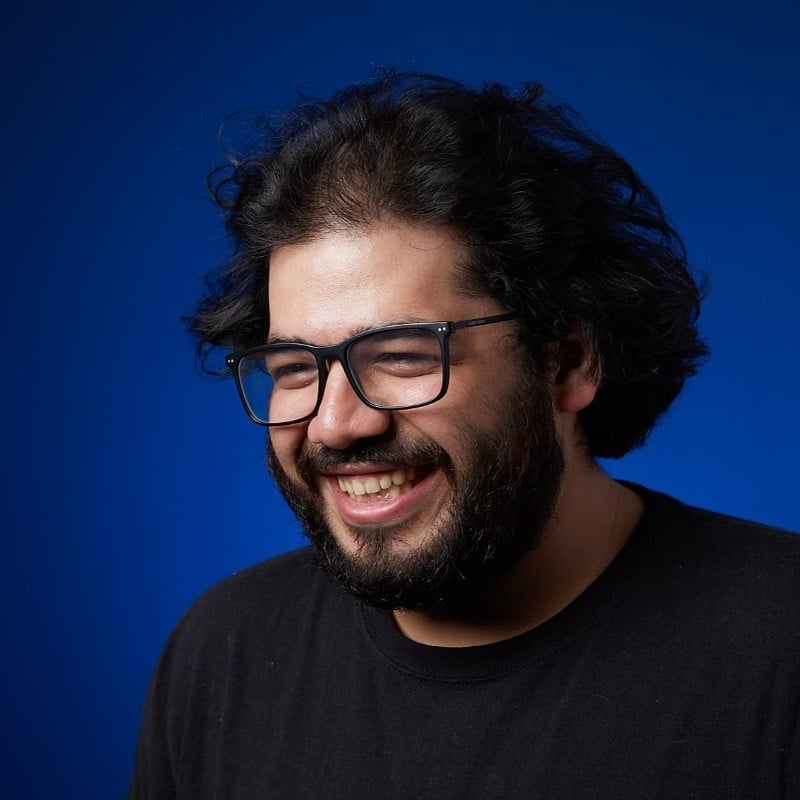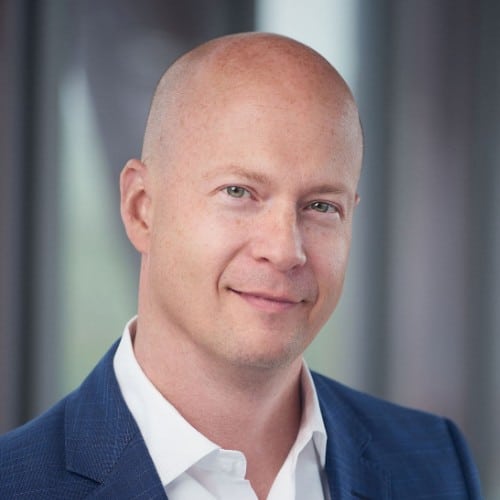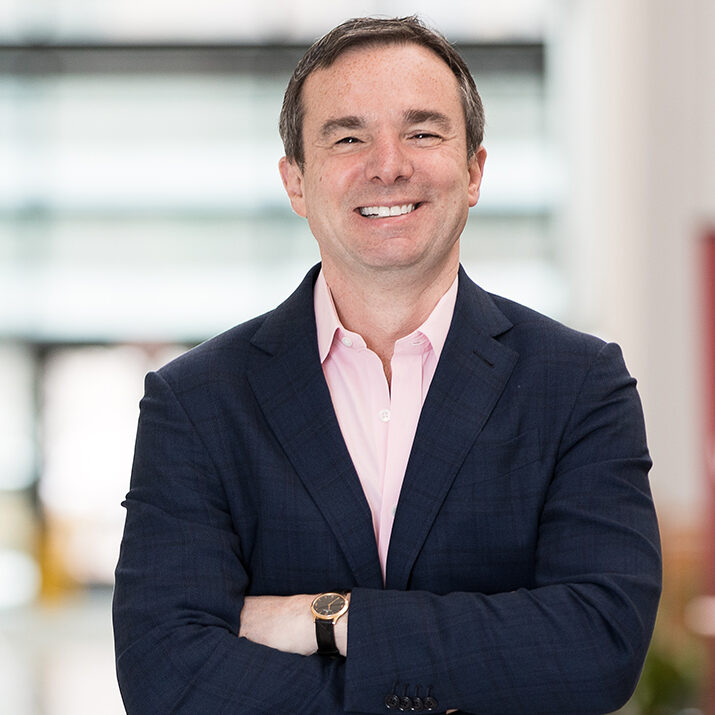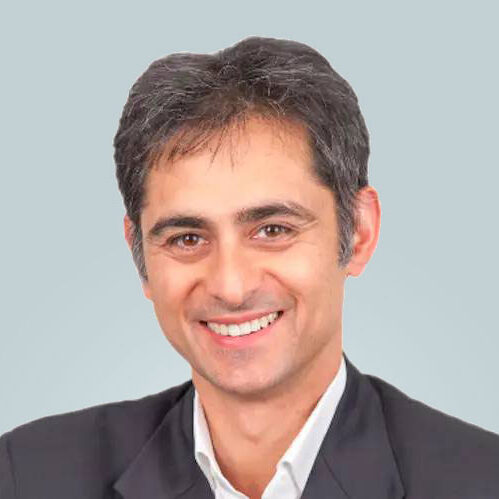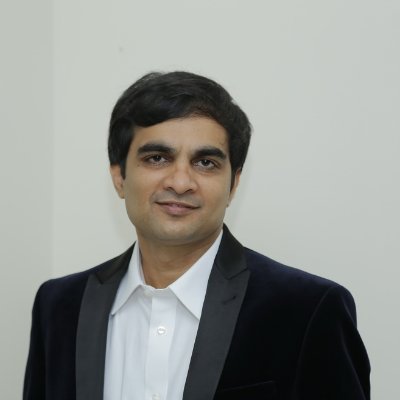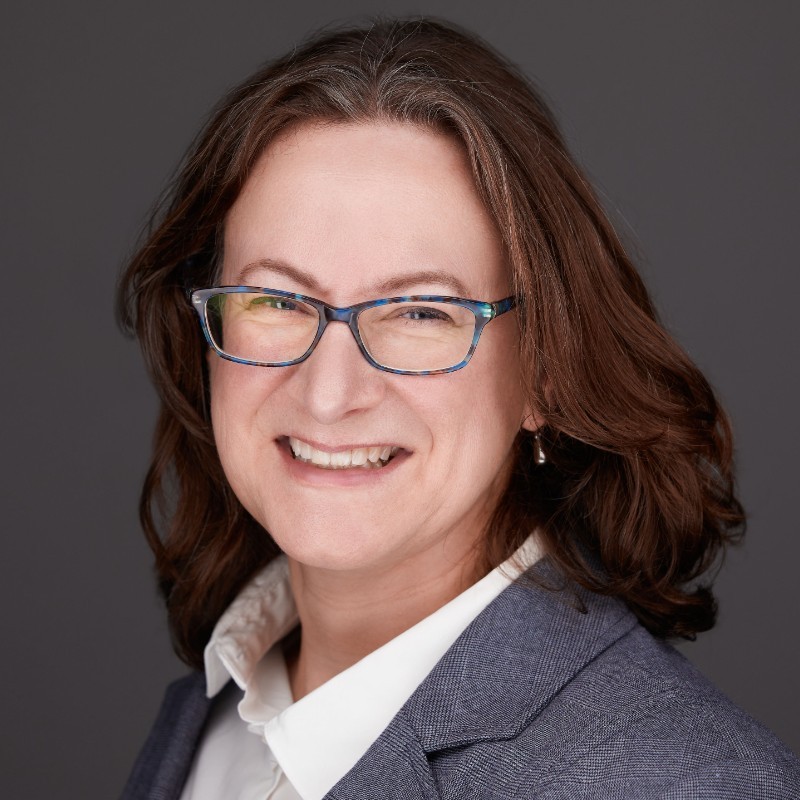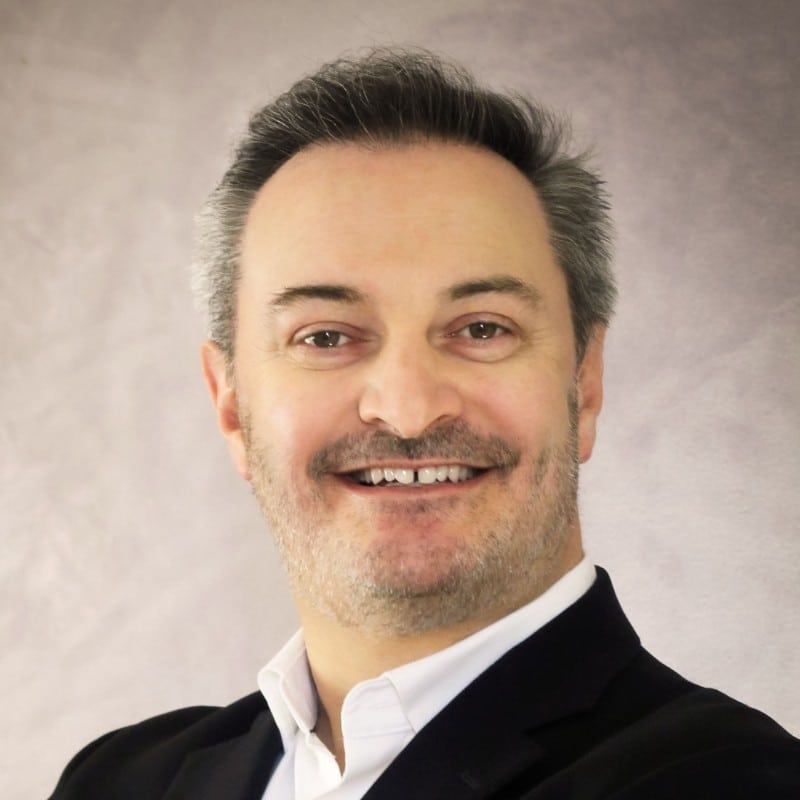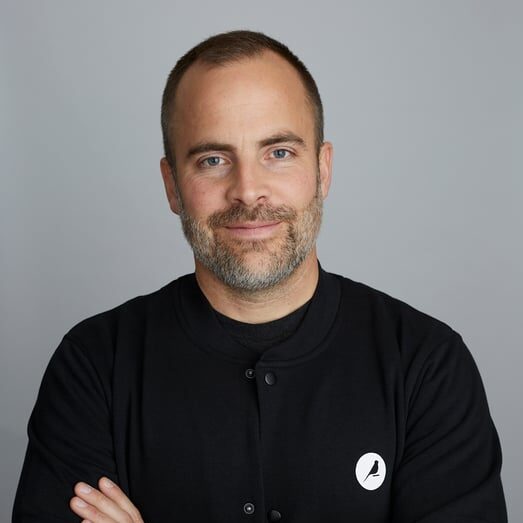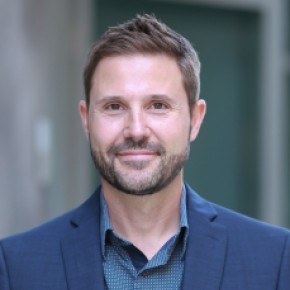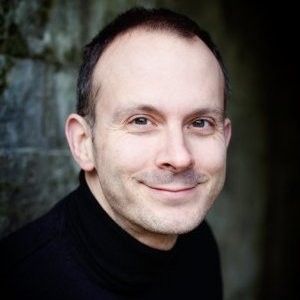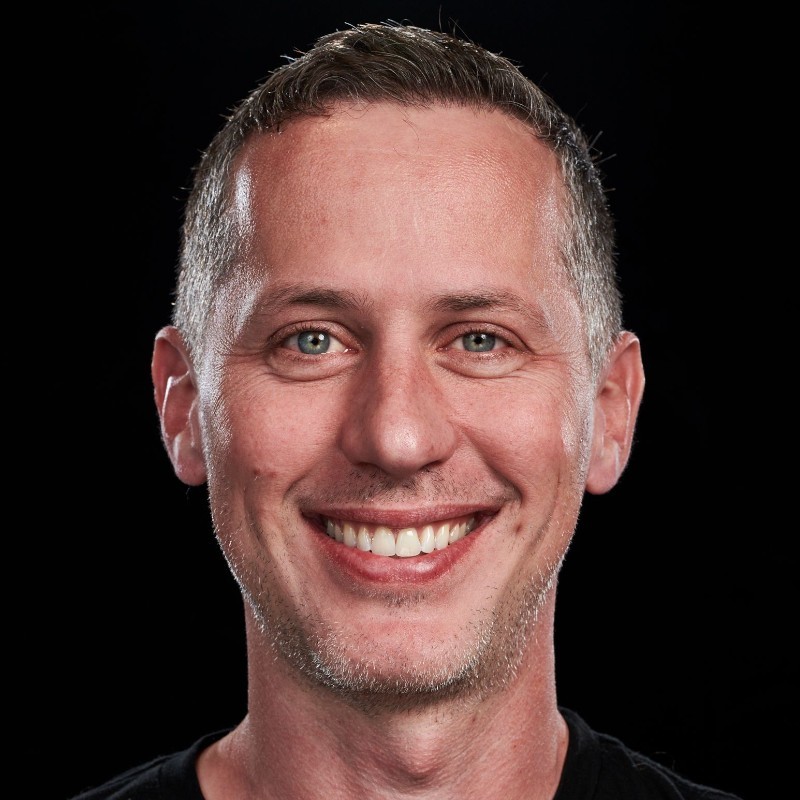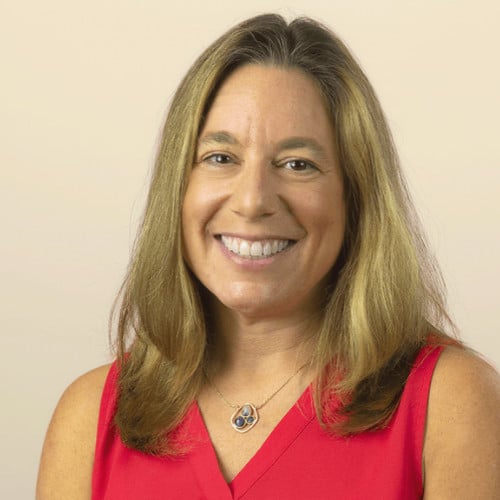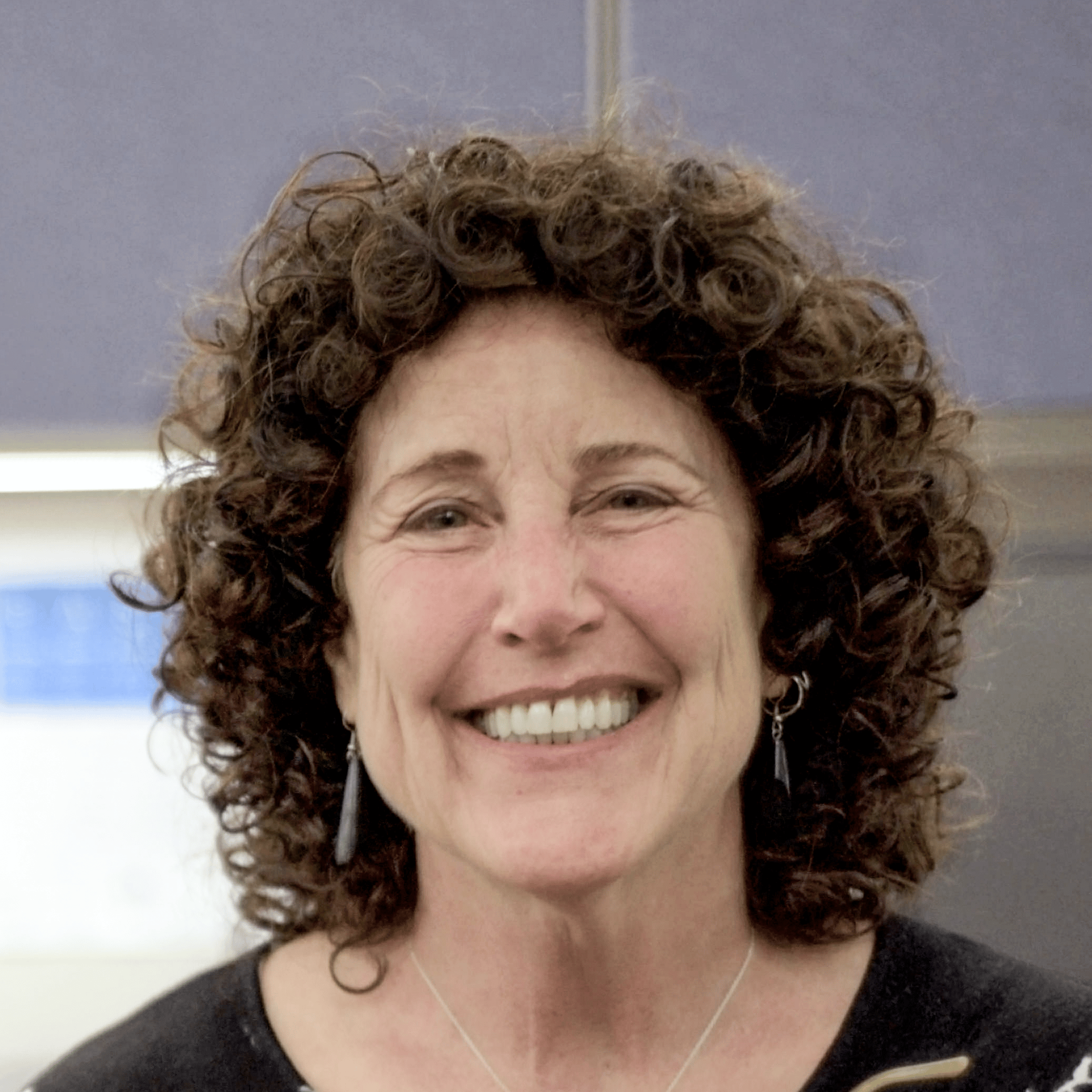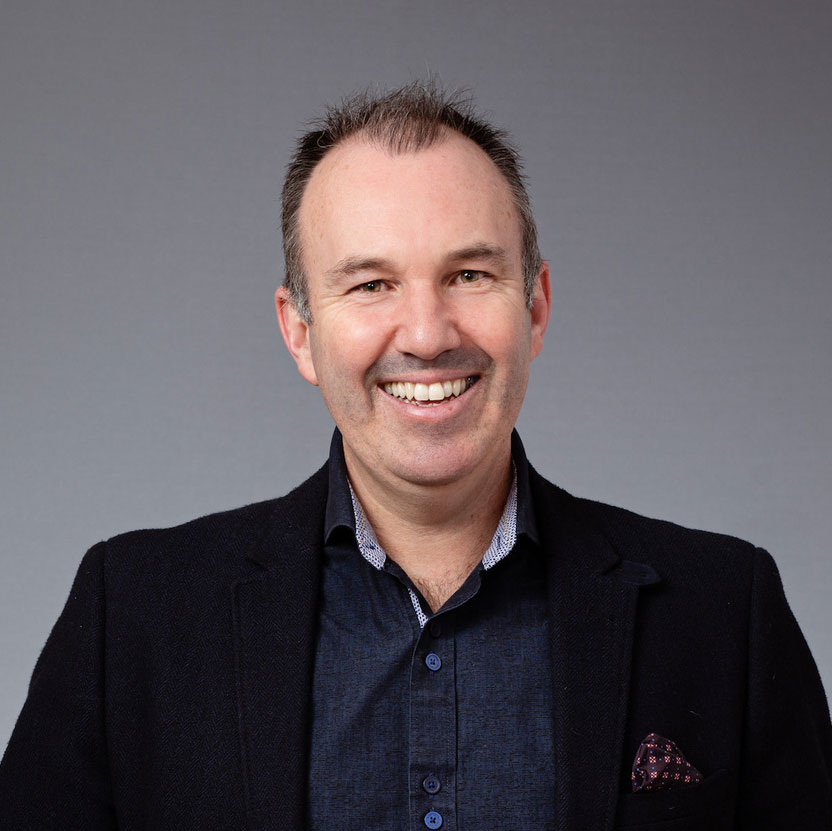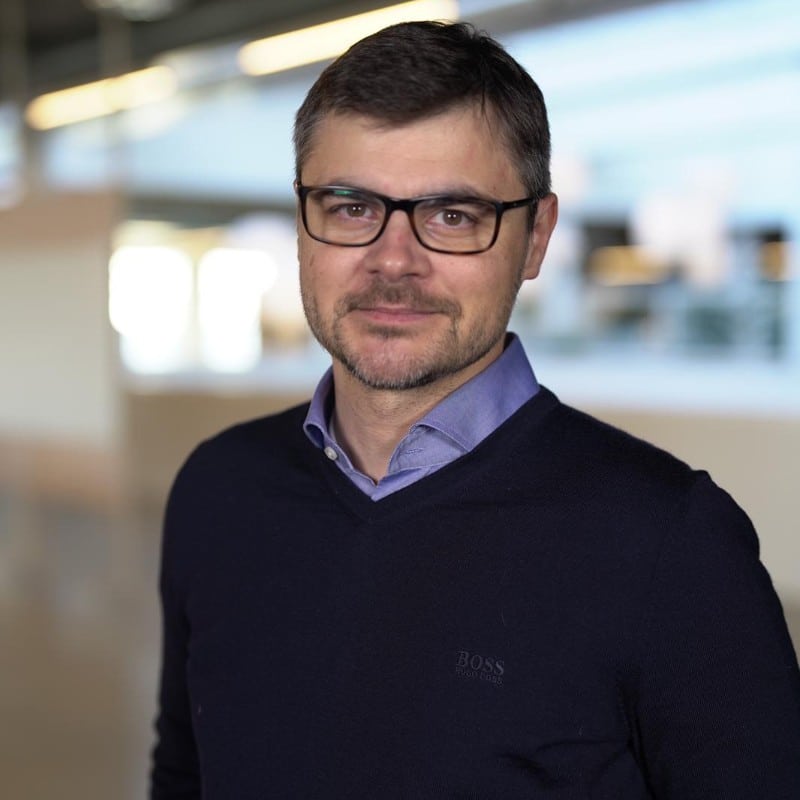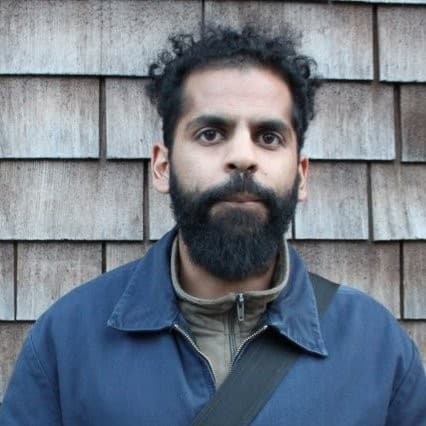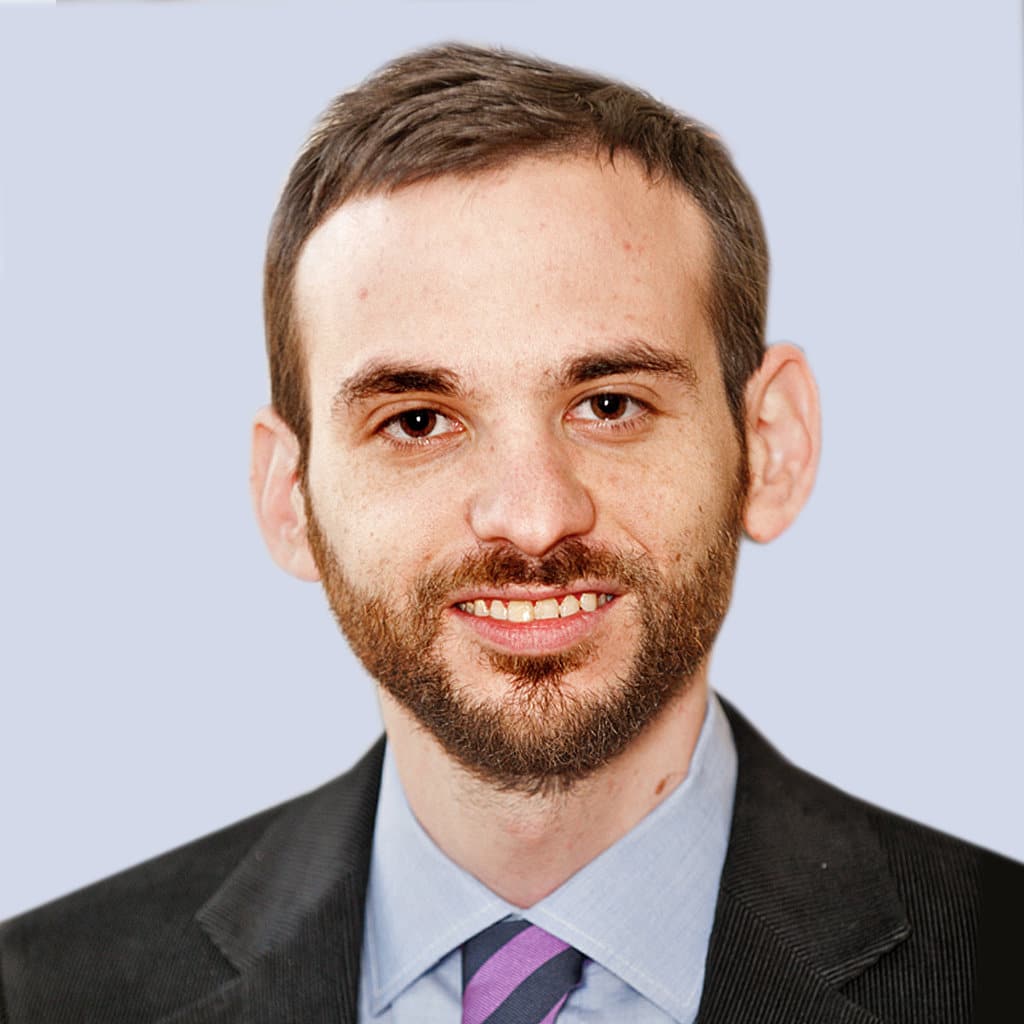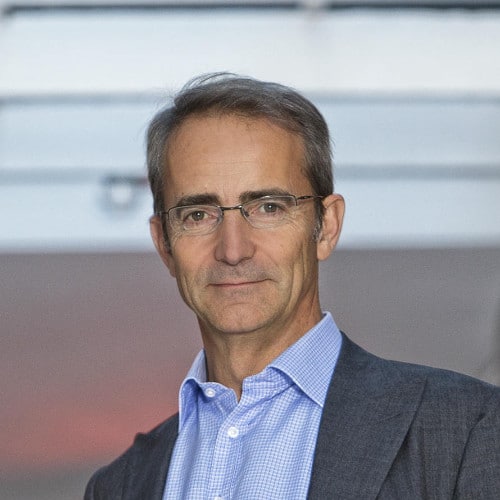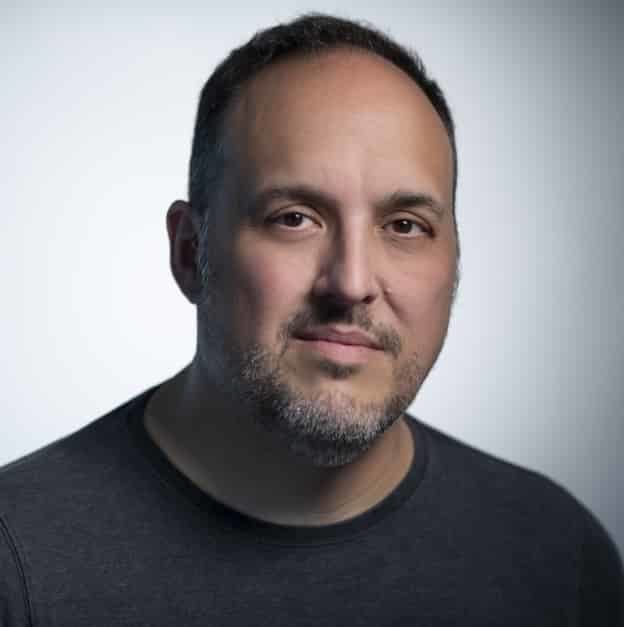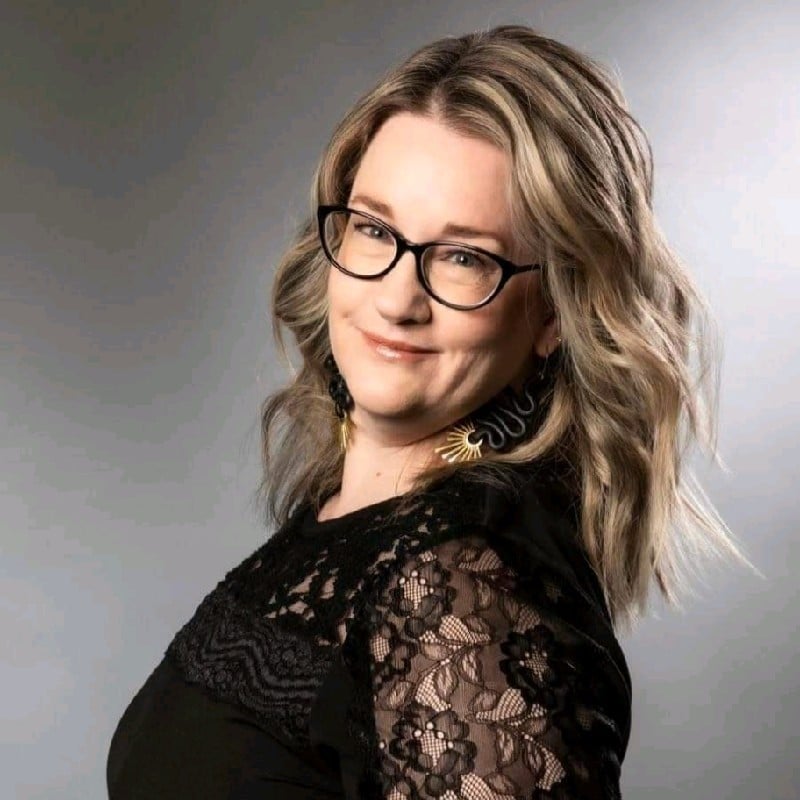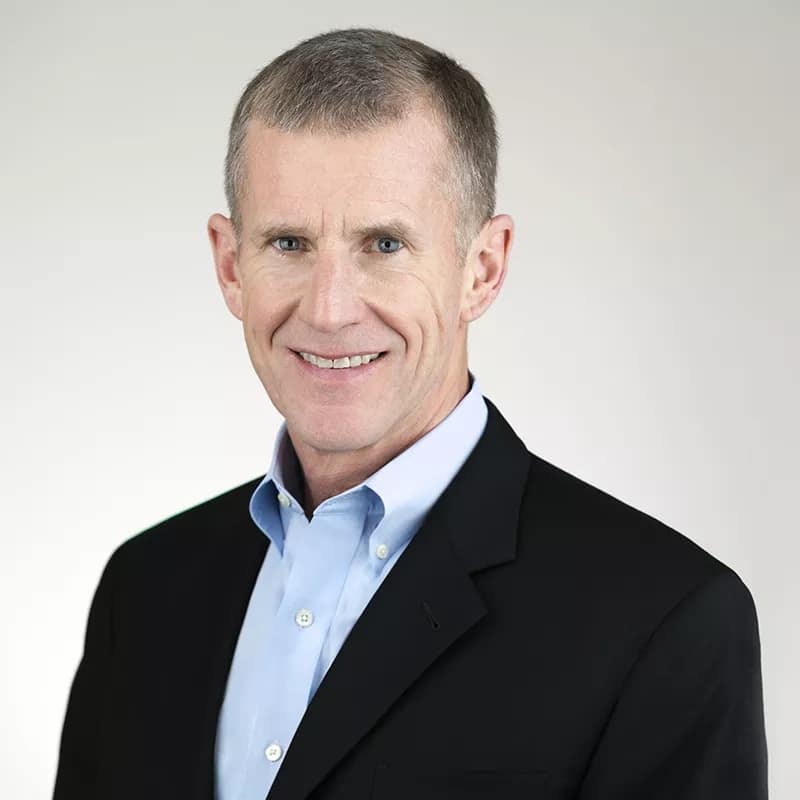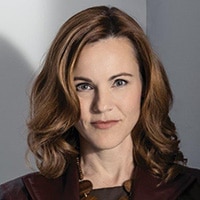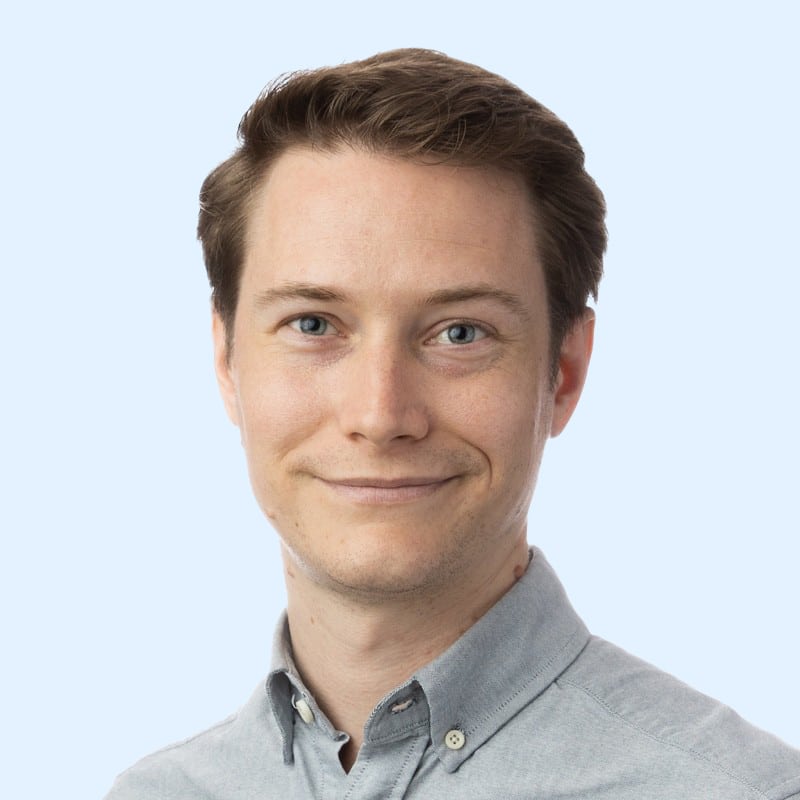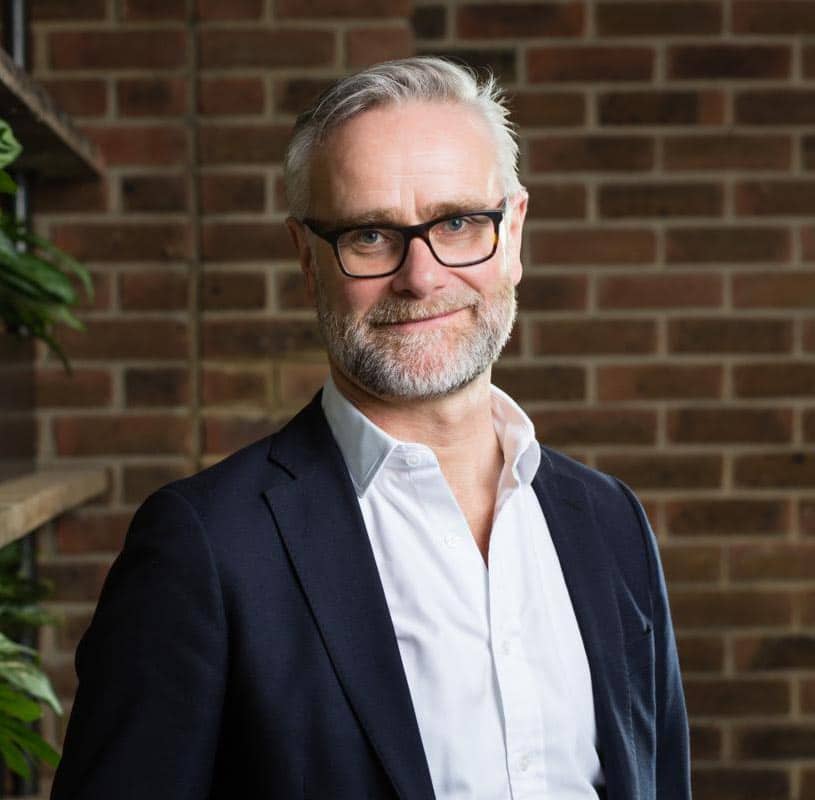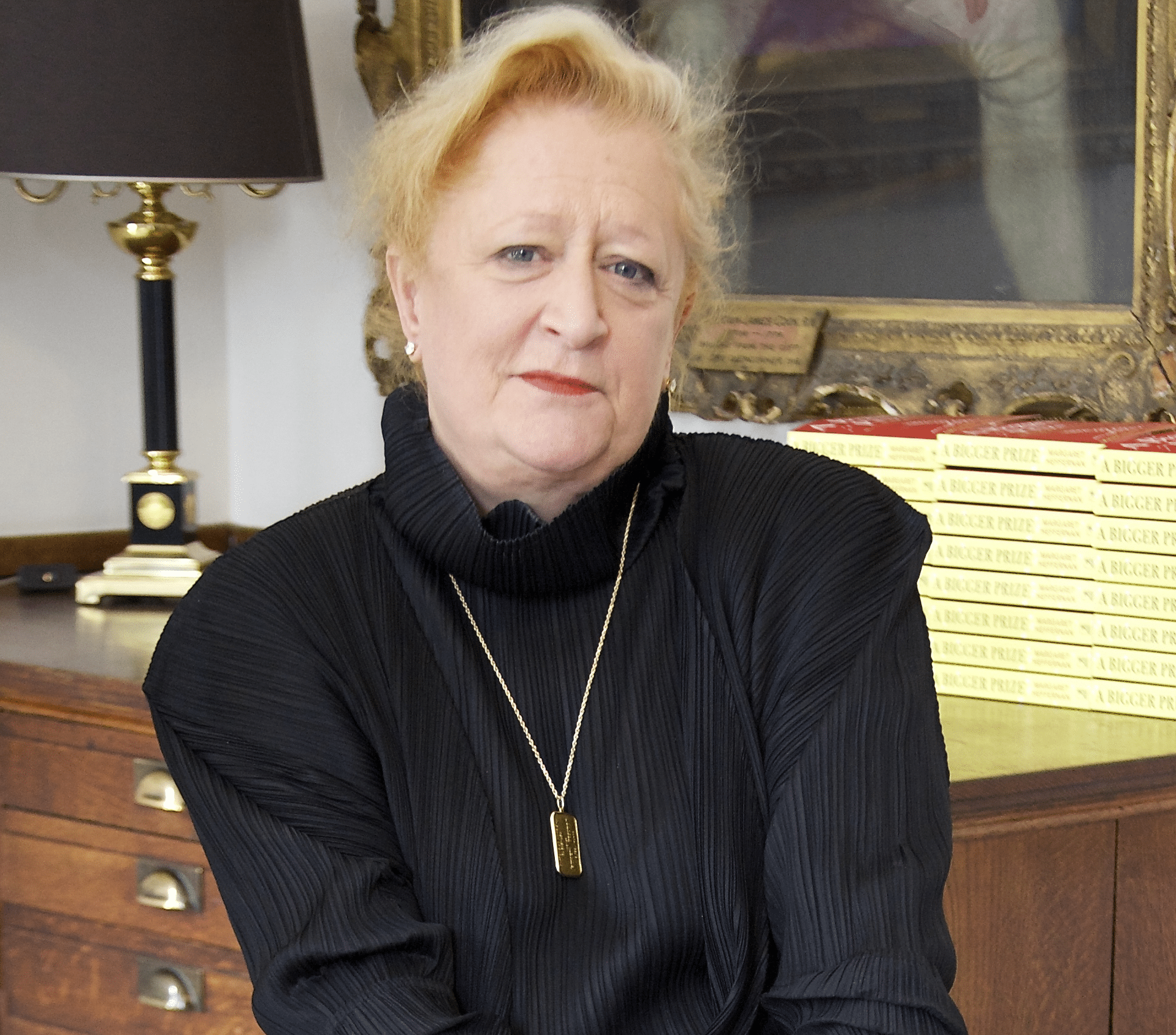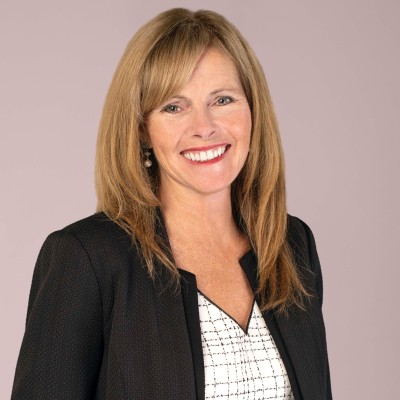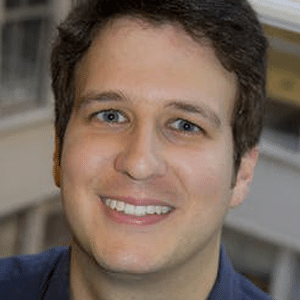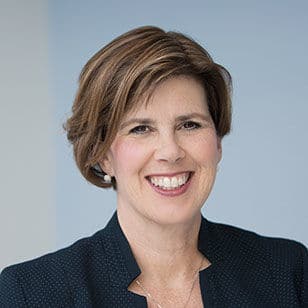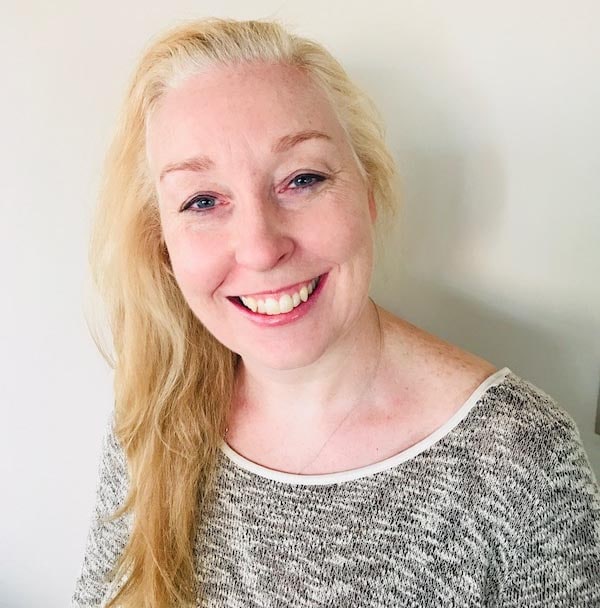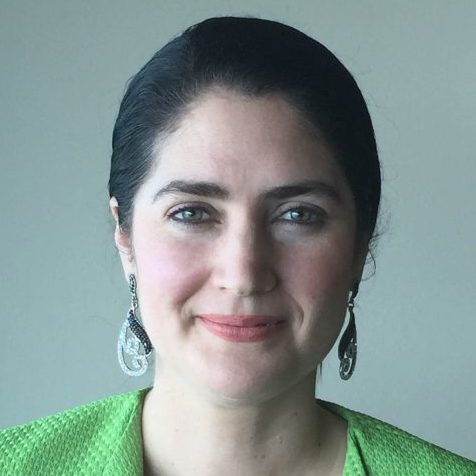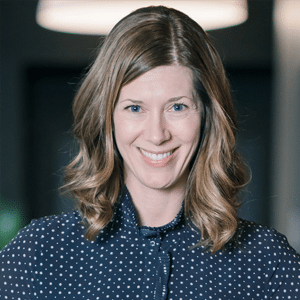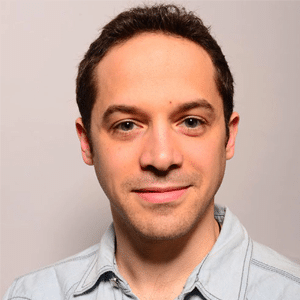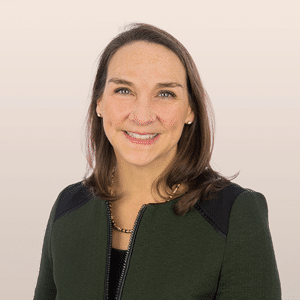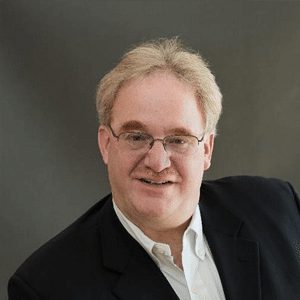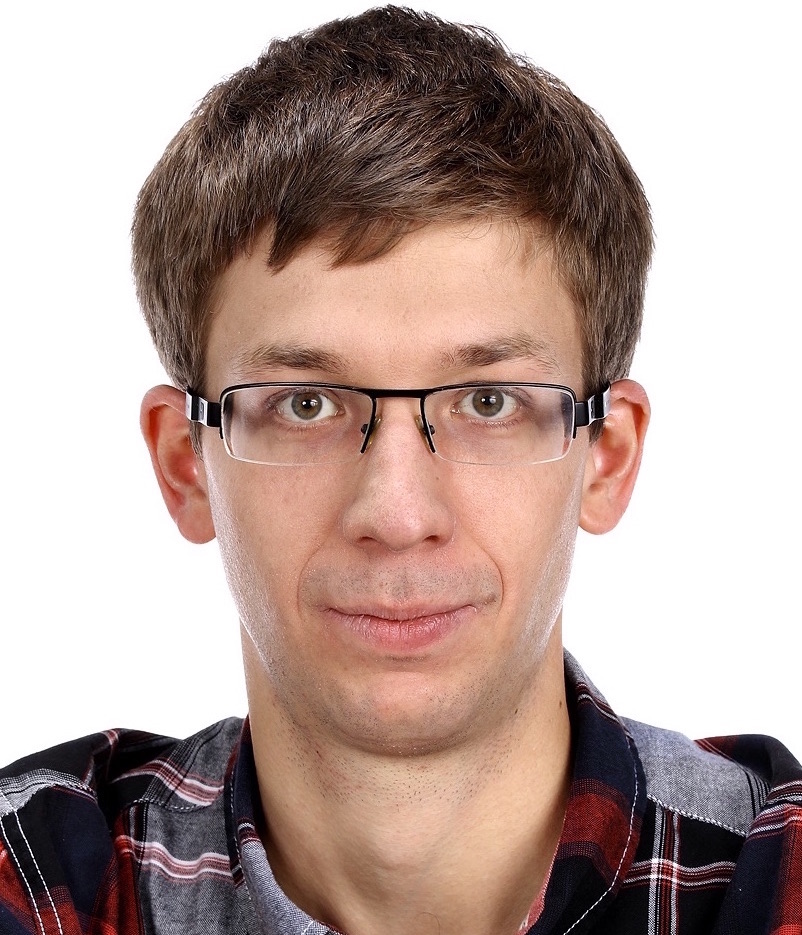Hard Filters and Nuanced Intuition
with Scott Hartley, Author of The Fuzzy and the Techie
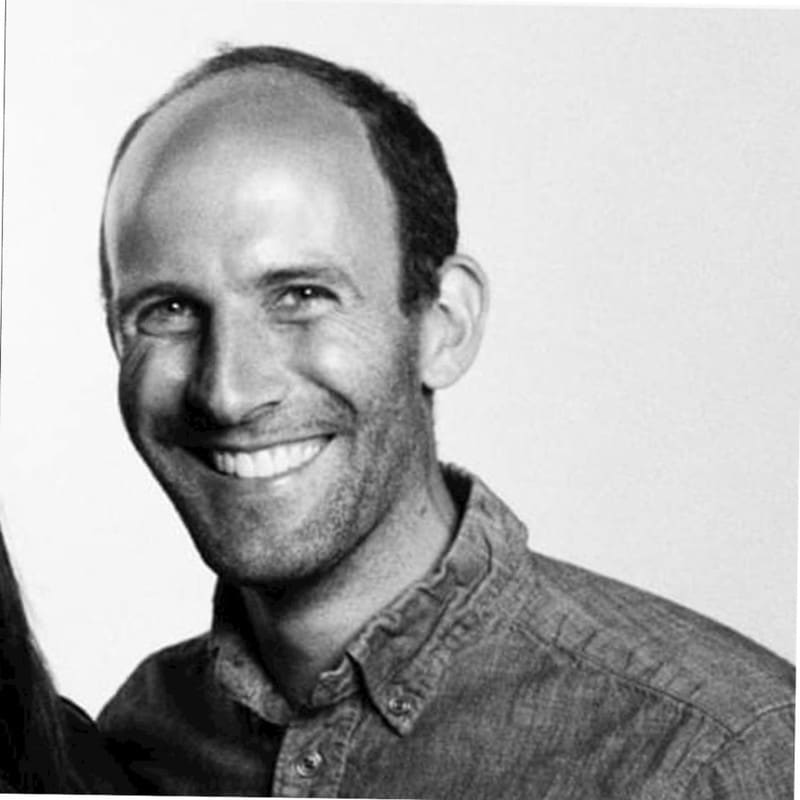
Scott Hartley
Author of The Fuzzy and the Techie
Scott Hartley is a venture capitalist, author, and speaker known for his work in the tech sector. He has funded and advised various tech startups. His insights often center on the need for a balanced approach to address modern challenges, and in The Fuzzy and the Techie, he emphasizes the importance of combining liberal arts and technical skills.
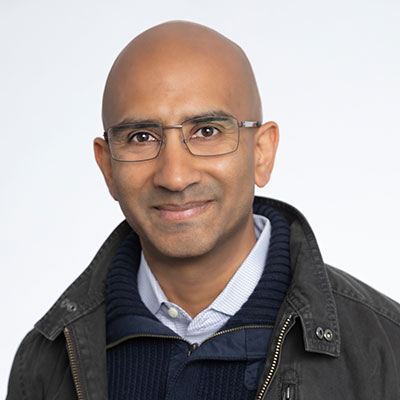
Satyen Sangani
Co-founder & CEO of Alation
As the Co-founder and CEO of Alation, Satyen lives his passion of empowering a curious and rational world by fundamentally improving the way data consumers, creators, and stewards find, understand, and trust data. Industry insiders call him a visionary entrepreneur. Those who meet him call him warm and down-to-earth. His kids call him “Dad.”
Producer: (00:01)
Hello and welcome to Data Radicals. On today's episode, Satyen sits down with Scott Hartley. Scott is a global early-stage investor with a focus on pre-seed to series A. His passion lies in emerging markets and big ideas that improve lives, particularly in financial services, health, supply chain, and logistics. Scott has served as a Presidential Innovation Fellow at the White House and has co-founded two venture capital firms, Everywhere Ventures and Two Culture Capital. In this episode, Scott discusses the techie and fuzzy side of Silicon Valley, the advancement of tech and how he chooses his next investment.
Producer: (00:39)
This podcast is brought to you by Alation. The role of chief data officer (CDO) is more vital and challenging than ever before. Alation offers a vision for building a strong data culture that empowers people to find, use and trust data. Download The CDO's Toolbox: 7 Tips for Building a Successful and Sustainable Data Culture, a white paper available at alation.com/cdo-tools.
Satyen Sangani: (01:18)
Today on Data Radicals, I'm speaking with venture capitalist, author, and entrepreneur Scott Hartley. Scott is known as an investor in more than 300 technology companies and also for his writing on the intersection of technology, society, and economics. Scott has worked at prominent companies such as Google and Facebook and has also been involved in startups and investment firms. As the author of The Fuzzy and the Techie, Why the Liberal Arts Will Rule the Digital World, Scott reveals why collaborations between fuzzies and techies, or folks with liberal arts and STEM backgrounds, are behind many of the most innovative companies today. Scott, welcome to Data Radicals.
Scott Hartley: (01:52)
Thanks so much for having me, Satyen.
Satyen Sangani: (01:53)
So you wrote the book The Fuzzy and the Techie, and I've often found that I straddle those definitions. Actually, I don't know, maybe that's not fair. I think most of the technologists would say I don't straddle that at all, or at least I feel like I do. But can you explain to us how you define yourself as being one versus the other and how you even came up with the two terms in the first place?
Scott Hartley: (02:13)
Yeah, absolutely. I think the real key phrase in The Fuzzy and the Techie is the “and” bit, right? Really focusing on not the either, or the fact that we are one or the other. But I think most of the most incredible engineers that I know have a deep passion for music or other soft skills. And they think about in terms of structural design and bringing things out of their code. On the flip side, when you look at the deep, rigorous social sciences, they're actually quite quantitative in many ways. The misnomer that there's like one extreme or the other is sort of a falsehood. This actually goes back to debates that have been held on campuses since the 1950s. There was a famous debate at Cambridge University, a lecture by a guy named C.P. Snow, who kind of lamented the chasm that was growing on the Cambridge campus between the humanities on one side of campus and the sciences on the other side of campus and sort of saying the best biologists are those that are all also well-read in Shakespeare and vice versa. Fast forward 50, 60 years, we still sort of have this debate and these misnomers around, is it AI or is it ethics? Is it this? Is it that? Is it code? Is it context around the code?
Scott Hartley: (03:18)
When I wrote this book in 2016, came out in 2017, the real premise of the book was to kind of bring this openness back to the conversation that it's not sort of, “This antidote to future irrelevance is through science, technology, engineering and math.” It's actually the fact that STEM is an important component, but STEM actually relies on historical context. It relies on empathy. It relies on all these other subjects that were kind of thrown out and shunned and cast aside with aspersions saying if you're a philosopher, there's no job for you in the future and then looking around Silicon Valley and saying, wait a minute, some of the best entrepreneurs that I see around here are people that in fact have brought these deep humanist backgrounds to technology. So the terms actually come from Stanford University. They date from the 70s. The fuzzies were obviously the folks on campus studying more of the history and literature and philosophy. The techies were, of course, studying more science and math and computer science. But the impetus for writing the book was actually witnessing one of the majors at Stanford that was producing some of the greatest technologists that I saw winning in Silicon Valley.
Scott Hartley: (04:20)
These were folks like Scott Forstall, who created iOS; Mike Krieger, who helped create Instagram; Marissa Mayer, who obviously ran Google Product and Yahoo for many years. A number of other folks like Reid Hoffman, they all came out of this one program at Stanford that was called Symbolic Systems. When you look at the history of SymSys, as it's kind of known on campus, it's this very interesting collaboration between linguistics, philosophy, computer science, and psychology. When I looked at some of the founders that were coming out of this major and then sort of deconstructing why is it that they're able to be so successful as entrepreneurs, I think it was this combination of soft skills and hard skills, the being technical enough to be dangerous, but also not sort of dismissing fully the need for communication skills, the need for collaboration, the need for all of these sort of soft skills that are rooted in the study of things like philosophy where there are no right answers, right? There's no specific one way to get to the perfect right answer. It's actually very analogous to entrepreneurship where you're feeling your way through the dark, you're getting toward an approximation of truth, as Stuart Butterfield has spoken about in his two philosophy degrees. They're sort of ties to his experiences as an entrepreneur.
Scott Hartley: (05:29)
It's actually one of the most parallel skill sets to that ability to be adaptable, that ability to sort of convince somebody of your position when there is no right answer, right? It's very analogous to being a CEO and running a company. This is just a little bit of unpacking of some of the themes of the book, but it's not about either/or. It makes sense to me that you would identify as somebody that straddles both of these sides because I think most successful people do. That was really the focus of the book, was to give people permission to say, “Wait a minute, I actually am a little bit of a fuzzy. I do love music. I do actually enjoy reading philosophy and literature.” I do find that that's informed me as an entrepreneur. That's informed my ability as an engineer. That's informed my ability as a technologist. And these aren't useless skills. These are actually deeply important skills to humanize the technology that we're building.
The secrets of SymSys
Satyen Sangani: (06:17)
One of my co-founders, Aaron, was also a SymSys major. And many of the folks that you mentioned who had that background, maybe talk a little bit about that major for me. What is it? Because it comes up so much in the Valley. Reid is obviously super well-known. Everybody's heard of Instagram. Folks know Marissa through Yahoo. What is it about that major? Are people still selecting into it that are inherently interested in multidisciplinary thinking? Or is there something that is in the major that brings out that sort of integrative thought?
Scott Hartley: (06:44)
It's a great question, especially on this podcast, right? Is there a selection bias kind of inherent in who's choosing this major? Or is it sort of implicit in what the major itself teaches, right? I don't know that there's any rigorous study on that, but that stat would be something interesting to look into. I think anecdotally from seeing folks come out of that program, speaking to some of the founders of that program. Folks like Terry Winograd, who was from the computer science department, who was the advisor to Larry and Sergey, he was one of the pioneers on the computer science side. John Etchemendy, who came out of more of the philosophy side. And then a guy named Tom Wasow, who came out of linguistics. When they were creating this program in the 70s and early 80s, they sort of looked at cognitive science and they said, there's this new major on a lot of campuses country that's merging linguistics and philosophy and cognitive science in this sort of new interdisciplinary focus.
Scott Hartley: (07:33)
But what it's missing is actually this new lingua franca, which is computers. We need to sort of merge computers into this conversation around brains and cognitive and philosophy. They actually were really instrumental in infusing computer science into a cognitive science major of sorts. That's kind of the history of this program was, it was around the same time as the genesis of lots of cognitive science programs with the foresight of a few people at Stanford that said computers are also in this whole debate that goes back again to the 60s. A paper by a guy at MIT, J.C.R. Licklider, talking about man-computer symbiosis and human computer interfaces, HCI, flipping the letters of AI around to be intelligence amplification and thinking about brain and linguistics and all these things. They have a computer component that computers will be a big part of this in the future and therefore computer science should be part of that major. And so that was really the genesis, I think, of SymSys. And anecdotally speaking, to some of these people like Marissa, I think it's this polyglot, comprehensive side of this major that gives people exposure that isn't directly related in the short term that you think, oh gosh, this is why I'm taking this program.
Scott Hartley: (08:40)
We were actually on stage at Stanford a few years back and we were speaking about this kind of debate of fuzzies and techies on campus at the Stanford Graduate School of Business. Marissa admitted on stage for the first time, she said that one of the classes that was the most formative in her product management experiences was actually a theater arts class. She said, you know, I've never really thought about this until right now, but studying theater arts as an undergrad gave me this context of how do you communicate and what do you leave out, right? And the big question is, what do you leave out when you're writing a screenplay or you're trying to create an experience on the stage? And depending on the audience, the way you would explain a love scene to a different audience in a different culture or a different time period is very different. And so if you look at a Bollywood film, the way that a love scene is projected is very different than a 2015 film versus a 1990 versus a 1950 film. The way that she connected these dots to product development is that when you're designing a product, there's certain things you have to unpack and explain. And there's certain things you can, they can be left implicit.
Scott Hartley: (09:46)
As Instagram kind of pioneered the endless scroll, that became a feature where we understood that swiping up on an iPhone screen led to a scrolling feature. You didn't need to then unpack that or explain that in future product development because people sort of knew that from that experience with Instagram or Facebook. And so these sorts of parallels in product design are really interesting that they have their roots in her experiences from a theater class. I think it's those types of asymmetrical or non-linear experiences that give the best of the best some ability to have those breakthrough innovations. I think that the roots of the book are kind of looking at the importance of diversity of education, diversity of thinking, and sort of these non-linear things that you learn actually come out in the greatest product designs. I think Steve Jobs obviously is the person people point to the most around these themes, but that's held true post his passing with things like Apple University that have continued to infuse Apple with conversations about philosophy, conversations about landscape design, conversations about things that are quite different from building an iPhone. Yet there are these parallels and these other ways that you can sort of unlock insights that lead to brilliant design.
The genesis behind the book
Satyen Sangani: (10:55)
Somebody once described it to me that there's sort of first-order thinking, which comes out of learning any particular discipline, but it's that second- and third- and fourth-order. If you're sort of imagining a graph, being able to traverse as many sort of nodes in the graph as you possibly can to link two things together, which is somewhat a random process, because obviously, as the graph becomes bigger and as relationships become wider, there's so much to integrate and really brilliant people just do that. What drove you to originally write the book? You spoke about the idea behind the book and how it explains so much of the greatness that might be generated or revolutions or innovations that might be generated. But what was your personal experience that drove you to write the book?
Scott Hartley: (11:33)
Yeah, it's a great question. For the last 12 years, my day job has been venture capital and it's a very privileged role to kind of sit on one side of the table where you're interfacing with incredibly smart, incredibly driven people building companies. Part of drinking from that fire hose is trying to come up with your own sense of reality and your own explanations for why things work or why things don't work. For me, writing was the only way that I could, with conviction, pin down my own opinions. I used to be a junior guy at a fund on Sand Hill. When my boss would run by the office and say, “Hey, what do you think about future of retail?” If I didn't have a quick answer as they were running to the bathroom, that conversation was lost, right?
Scott Hartley: (12:14)
I found that writing was the only way that I could crystallize down, into this crucible of opinion, exactly what I knew and exactly what I could say in one sentence when somebody was running by to the bathroom. For me, I started writing for Forbes and writing sort of shortform pieces that then informed this belief that actually there's this underserved population of Silicon Valley that's not being sort of met by the headlines, the moments in time from Vinod Khosla or Marc Andreessen saying, there's no future market for philosophers, yet seeing Chris Dixon's success or Reid Hoffman's success or Stuart Butterfield's success or Peter Thiel's success and saying, well, wait a minute, actually, there are a number of pretty high functioning philosophers here in the Valley, not to mention the guys at Palantir or other places that refute that.
Scott Hartley: (12:58)
Let me take a step back and give people permission to kind of be themselves, their whole selves. I think one book that was inspirational to me was a book by a woman named Susan Cain that's called Quiet. That book really is a permission book that gives people the permission to be introverts. And it sort of says, hey, even if you want to have all these things and be the successful CEO or investor or whatever, you don't need to be the rah-rah extrovert all the time. You can actually be successful and be an introvert. And here are a bunch of examples of that. And so that was kind of impetus for the book was one part selfish as a way to kind of crystallize my own thinking. One part autobiographical in that I was a political theory, philosophy and politics major, yet kind of ended up at Google, ended up at Facebook, ended up as a tech investor. For a long time had this kind of imposter syndrome of, what is it that I'm doing here? Why am I sort of sitting in all these seats? And there are a number of people like this around me. And then the third was really to kind of give a voice to something that I thought was a counterintuitive truth that was actually quite true and people would agree with yet with some conversation that really hadn't been had in the public light.
What makes an investment-worthy founder?
Satyen Sangani: (14:04)
I love that book. It was a revelation for me, too, because I think prior to reading it, I thought that the CEO title was a pretentious title. I don't know if I'm going to be a CEO, but she described how there was this concept of being an introverted CEO. I thought that was a really interesting idea. So anybody who's listening, please go read that. That’s a very familiar story to me and yet I think in my experience in Silicon Valley, there is so much more respect and deference on average paid to the techie, to the one who is defining the newest algorithm, coming up with the newest technology. And yet there's this kind of founder echelon that might be a little bit more integrative. As you invest and as you think about investing, is that something that you're actively looking for? Do you invest in founders that may not exhibit sort of that integrative trait?
Scott Hartley: (14:53)
Yeah, it's a great question. There's absolutely a space for, the pure techie as well as the pure fuzzy, right? And so I think one of the most counterintuitive or interesting points of pushback that happened on the book six months after its publication was sort of the pushback from the extreme humanity set of liberal academia saying, wait a minute, here's this rah-rah Silicon Valley guy here to steal our philosophers. That's what the Paris Review sort of wrote about it. They said, here's a guy coming out of Silicon Valley saying that the only relevance of philosophy is if you become a CEO and a tech founder. It was kind of funny that the rebuttal came from the very people that in some ways I was out to defend, right? I think of the purity of the subjects absolutely needs to exist.
Scott Hartley: (15:35)
On the technology side, that is infrastructure layer frontier technology that is deeply technical for the sake of building that technology. I do think though, however, that the questions we now are facing around data privacy, harvesting data for the manufacturing of LLMs, there are questions of civil liberties, of privacy, of ethics, of a number of other subjects that I think need to imbue that conversation as well. So even on the infrastructure-level technology, I do think that these are not purely technical issues. Interestingly, when you talk to people at the frontier of self-driving cars, for example, autonomous vehicles, a lot of those folks are challenged mostly by anthropological challenges. The LIDAR sensors import the data, the data is there. But then the question is, how do we interpret certain tacit human communications across cultures?
Scott Hartley: (16:26)
Hand-moving in Japanese culture is very different than in New York City. If you're Nissan and you're exporting an autonomous vehicle across the world, there are these deeply interesting challenges around how you interpret the data. I love this sort of thought around data collection and big data is one thing, it's collecting information, but then turning that information into knowledge and into wisdom in one part can be done through, I think, unstructured to structured data through things like LLMs that are enabling us to sort of move out of the information noise into a bit more knowledge noise and then maybe into wisdom specificity. But I still think that there's a leap there that's going to be human driven, right?
Scott Hartley: (17:04)
And really require whether it's a person sitting there interpreting, or it's a team of engineers thinking about the sensitivities, the data tagging, there are human decisions in the mix somewhere along that chain, right? As we're taking unstructured data and turning it into structured knowledge and wisdom. And so, I think all these things to say that even these deeply technical infrastructure level technologies, I think, have elements of humanity in them. Tracy Chow is another interesting example. She's somebody who's been fairly outspoken about her own sort of lack of education in the humanities and social sciences and leading product at early organizations like Quora. She found that some of the most existential questions for product development were sort of taking a step back before we build products. Let's think about human nature. How are people actually going to use this product? Where are they going to deviate from our expectations? Where are they going to violate terms of service? Where are people going to answer inappropriately? How do we set guardrails, content moderation parameters around the product based on human knowledge, right? And so, I think even these deeply technical conversations that we're having about infrastructure layer always have this kind of human component as well.
Subjectivity, structure, and bias
Satyen Sangani: (18:11)
Yeah, I guess a couple of things are fairly interesting. I think one of them is that as you think about sort of all of this product design work and all of this sort of implicit knowledge — like you said something I think we've said earlier, which is that the structuring of data, in fact, is itself a choice. Like when you decide to go from unstructured to structured, you're counting something, the occurrence of a word in an article. I mean, just even the decision to count that word and whatever attributes associated with it is a subjective judgment on what matters and what doesn't matter. So, I think even in that small example, you have a lot of sort of judgment that's being applied. And I think a lot of data people feel that because the data is very like structured and physical, but often you find that you have to have an intuition or a hunch in order to be able to know what to look for and where to go and whether or not something's a valid hypothesis. So no, I think that's very true for data people.
Scott Hartley: (19:00)
Just to follow on that too, there's a really interesting Warren Buffett quote where it says, “Put a squad car behind anyone for 500 miles and they'll find you running a stop sign.” And there's this sort of notion at one really poignant example of data and collection and this question around the subjective nature of tagging and all that is looking at the frontier of predictive policing where you say, “We have all this data on crime, why wouldn't we just deploy fleets of officers around high areas of crime?” and then taking a step back, where you say, “How is crime reported, where is the data coming from? What are the underlying assumptions around who's reporting data and who's under-reporting data?” There's obviously certain questions of bias to certain questions of criminology, of all sorts of other layers and layers and layers beneath the raw sort of put it into the algorithm and come up with the answer and so it's your point around these subjective moments. Another great book which I'd really recommend is a book by Cathy O'Neil that's called Weapons of Math Destruction. In there she says, “Look, data is not going away, big data's only getting bigger and bigger,” but these questions, these moral questions around what to pay attention to and what to leave out are inherently subjective decisions that come down to real prioritization and real questions around ethics and all these other subjects.
Scott’s investment focus
Satyen Sangani: (20:17)
So moving, I think, into the world of your day job of venture investing, the landscape of investors is now vast even relative to, I don't know, 20 years ago when, roughly speaking, we would have started our careers, and that choice means that as an investor, you have to differentiate and you have to think about where you're gonna play. How do you think about that in your own career in life and where do you differentiate and what sorts of things do you gravitate toward and where do you focus?
Scott Hartley: (20:47)
Yeah, it's a challenge. The market has really changed in the last year, obviously over the last 12 years, I've seen a few booms and bursts in different cycles and so I think one thing is to remain even keel at the helm, even when the world goes crazy around GenAI or on Web3, or around sharing economy or around whatever the latest buzzword is, right? The way that we differentiate is we're very disciplined around stage and so if you think of venture capital, you can largely divide the world into stage and sector. We are broadly generalists across sector but we're very specific to stage and so we primarily invest at the pre-seed so we've written about 300 checks over the last six years, roughly about one check per week, a fairly high-cadence investing, conviction-driven, but the premise of our fund is that all of our LPs are founders themselves. It started as a small experiment in New York, getting about 50 founders and operators to pool capital to invest in the next generation of founders in New York and the real goal of that was to create a topsoil of smart product and technical folks that could support the next generation of startups like existed in San Francisco.
Scott Hartley: (21:50)
But at the time, didn't quite exist in other ecosystems and through COVID and through the global nature of New York, when COVID happened, that network spread across the globe and so we were pulled to launch these micro communities of founders across other geographic areas like Sydney, Los Angeles, London, Berlin, and we really expanded out to be Everywhere Ventures and so we're doing something that is counterintuitive. In the early days of venture, people told me it was not possible. They said, “If you wanna be a global investor, you gotta be a growth investor, because that's the only time you can sort of pay attention and get enough data to go into a far away market to make an investment. If you wanna do early stage or pre-seed you gotta stay local.” And what we've, I think, been able to do through this interesting network of founders who are our investors is create an engine of deal flow that's highly validated by people we trust that happen to be across the world. I think the way we try to differentiate is to stay very true to stage, so only pre-seed, only below certain valuation caps, typically below $10 or $15 million entry evaluation.
Scott Hartley: (22:55)
We're not going to Wycombe NATO and playing the Demo Day game more typically trying to invest in companies before that. Nothing wrong with folks going there for amplifying their message and all that, but we find that the valuations coming out are often quite high for us and so that's kind of where we got our niche. But to your point, it's become a very crowded space and I think we'll see over the next year or two, a lot of tourist funds and a lot of tourist entrepreneurs will probably start retreating from this market as the squeeze comes on capital, and the thing that we're really seeing is that the train cars have gotten backed up, right? So when the IPO market shut down and the growth stage companies need to come back to series C and the series C companies need to come back to series B, the train gets all the way back up and so what we're seeing at the pre-seed and seed is that really capable great founders, but maybe don't quite have escape philosophy to get to their big seed drones are coming back for top-ups at pre-seed and what that's doing is it's crowding out early early companies, so that there's kind of this flight to quality where there is zero some dollars that are now chasing companies with pretty significant metrics that are almost at seed stage that are still raising in the pre-seed world and then new founders that are coming in, obviously launching from day zero in the pre-seed world.
Scott Hartley: (23:58)
They're kinda duking it out for these dollars and so I think what it's gonna lead to actually is a selection of really high quality entrepreneurs that come from this vintage. We always ask this question: Why did Airbnb come out of the 2008 crisis? Why did Uber come out of the dark times of post-crisis time periods and I think maybe it's this crucible where the train cars get backed up and you have these highly competitive dynamics in the early stage rounds where really the best idea is the best repeat founders is the best folks are hopefully in that market getting the attention and raising the money, and then that's the reason why these vintages tend to shine, I think, looking back. Those are just my thoughts. I'd love to hear what you think about what you're seeing in this market too.
Where to fund
Satyen Sangani: (24:48)
It's impossible to argue with the train car. We're seeing on our end — and we're, of course, a later-stage company — but we're seeing on our end a lot of companies that are saying, “Hey, you know, it's kind of the end of line for us, could you be a potential acquirer?” I do way less investing than you do, but you do see, at least in the deal flow that I see, there's these amazing founders who will probably get funded in any vintage, but it's harder and harder to get people's attention. So it's interesting in this world where you have this backlog where, in your stage, you're now selecting between these great, amazing brand new founders who basically have a pitch deck, and then companies who are now coming back for the second draw where they've learned something maybe for 18 months, had a little bit of money, but can't quite get to that next round. That, a little bit, feels for data leaders, like, “What do I fund? Which projects do I think about?” Because in many cases, data leaders have this sort of idea that they wanna invest in, but they're always choosing between maybe the project that's kind of successful and the project that's not successful at all, or that has some promise but has no evidence. That I think is the really instructive linkage for those folks to make, how do you choose? What do you look for? Because you don't have very much information, you have resumes and you have got a little bit of a product idea. So what are you looking for?
Scott Hartley: (26:11)
I'd say the gating functions for us and we evaluated a company, it's really kind of, is it directionally interesting and in line with the thesis and view of the worlds that we are both passionate about and believe in? It also comes down to the human side of “What are the things I wanna spend my time on?” There may be an absolutely amazing gaming company, but if I'm not a gamer as a VC or we don't have that as a thesis, e-sports could be exploding, but it just may not be an area that's right for us. And so I think my advice to founders is, typically, find some investors that love you, but you don't need everyone to like you and don't be discouraged by the 50 nos because that's natural, just fill to end of the pipeline and keep the crucible of talking to six or eight folks at the same time and just keep that going because as people fall out of that crucible, add somebody else. You don't wanna boil the ocean and talk to everybody, but you do wanna sort of keep enough impetus that there is a bit of FOMO and there's sort of an engine running there. I think for us, the way that we make decisions, again, is sort of around, is this a directionally interesting idea, is this a founder that we believe has the flexibility of mind, the coachability, and the grittiness to stick with this? There's a great HBR article about what's called the 6/10 rule.
Scott Hartley: (27:12)
The 6/10 rule basically shows in the data that companies that exist for over 6 years and between the sixth year and 10-year mark, generally accrue most of the market capitalization of that new idea. So if you have an n of 10 at the beginning and then eight of them die by year six because they can't raise money or they don't quite exceed on the plan, two are remaining just around the time that the market starts to coalesce, people start to figure out exactly what this is and all of the growth in the market starts to happen and so really all of that market capital accrual goes to the surviving two and that generally happens in between years 6 and 10. So when we think about this from a founder standpoint, one of the questions back to this sort of fuzzy and techie is, does this person have the charisma, do they have the ability to sell, do they have the ability to hire and to win in this market relative to other founders? And do they have that ability to fundraise? Part of that is having the idea, for sure, but a really great analogy that's in the first chapter of the book is auditioning for Broadway. I think this is so parallel to entrepreneurship, because so many people come to me and they say, “Gosh, I had the same idea as that other guy. I wish I had done it because I had the same idea at the same time.”
Scott Hartley: (28:19)
And I say, “Well, 50 people go and audition for Kate in Taming of the Shrew on Broadway, but one person gets the part in 49 people go home.” And why is it that that one person gets the part and 49 go home, well, it's that one person really imbued the personality, they won, they presented that role in the best way on stage, under the lights in the heat of the moment and they acted the best. And so in some sense, this idea that me as a venture capitalist, as a psychologist evaluating your motivations, your authenticity, your merits, and you as an actor on the stage showcasing what it is you wanna build with passion with authenticity and that sort of metaphor, I think, speaks really purely to what I see in entrepreneurship, where a lot of people have the idea, a lot of people get the same script, a lot of people get the words on the page, but only so many of them can say the words in the right way and really present it in the perfect way to win the part, stay alive until year six and then sort of see all the market capital accrual go to them.
Scott Hartley: (29:18)
And so that's one of the things that we really look for is this sort of je ne sais quoi quality of YC has the same approach when they interview founders where they say, “We just look for a high cadence iterative founder, somebody that's deeply experimental and deeply driven and passionate about going after this problem.” Because chances are the first and second don't work and maybe it's the third or fourth idea that gets you to that place you wanna be. Somebody told me recently, they had a hard-driving boss and their boss used to kind of accost them in the elevator and he would say, “Tell me your third best idea!”I thought this was so funny, because you said your first idea is not gonna work your second one is way too expensive, so I only wanna hear your third idea right now and I think that's also parallel to entrepreneurship, you need to be able to think outside the box and need to be able to have the humility to walk away from idea one and two and so find that third idea, that's not the one that didn't work, not the one that's too expensive, but the one that sort of down the middle of the road.
The “tables-stakes economy”
Satyen Sangani: (30:09)
If I'm thinking about your set of criteria there, increasingly narrow, so you mentioned global, which obviously is everything in the world, but on the other hand, you're filtering down to pre-seed, which is obviously a lot of entrepreneurs. Does all of your deal flow come from your network. Is that like a minimum criteria that it has to come through the network?
Scott Hartley: (30:28)
Absolutely not. We just find that the signal-to-noise ratio, the fidelity is much higher on the network, we use that obviously to validate it through people we trust, we back plenty of founders that come directly through our website or email us through LinkedIn, any number of ways that come in the door, but generally, the way that we get comfort with those early-stage investments is through peer validation, through people that are deeper in those sectors than ourselves — and typically those are our LPs that are founders in those sectors. So the three areas of focus for us, mostly from a sector standpoint, we call it the table-stakes economy, but it's money, health and work. I would think of those in two vertical categories and one horizontal category, FinTech being a vertical, digital health or telemedicine being a vertical, and then I think really work, Future of Work is in some sense a cop-out answer, because Future of Work can come across a number of different verticals and the way I think about that is: AI is the future articulation of SaaS or the current articulation of SaaS.
Scott Hartley: (31:27)
It's taking software as a service and super charging it. It’s where we're really interested in Future of Work companies are not so much in full automation. I don't tend to believe that everything can be automated all at once, but what we see is in a given vertical job, there is a job function that's made up of, say, 100 tasks, and of those 100 tasks, there's some portion of those that are highly rote and highly routine and whether it's Excel model that's automating some tiny function for you, or it's an AI layer that's augmenting your intelligence to make you supercharged, those are the places where we're finding Future of Work companies. I wrote something recently, which I call the AI trade-off and it's really this trade-off between what I call strong versus skinny and if you think of AI as amplifying or super charging what you're doing as a company, you have a two-fold choice, you can either cut your workforce by 90% and get the same output on one-tenth the inputs, if you're taking this presumption that AI is 10x-ing your employees or you can actually become strong and 10x your output on the same inputs you have. And I think in this highly competitive environment, what we're gonna see is AI is going to amplify output.
Scott Hartley: (32:38)
The same inputs are going to go tenfolds. You have the same set of developers now using co-pilots and other things that are supplementing and amplifying what they're able to do and you'll see some companies that have to survive that are making those headcount cuts and becoming skinny, leveraging AI or IA to supplement a much slimmer workforce to achieve the same outputs. I think those are the areas that we're pretty interested in around Future of Work are very specific to vertical categories and automating the rote and routine aspects of certain jobs.
Augmentation, amplification, improvement
Satyen Sangani: (33:09)
So, the thesis — you said essentially digital health, FinTech, the Future Of Work — but specifically things related to augmentation or amplification of what people are already doing, so helping people do what they do better or work better?
Scott Hartley: (33:23)
Exactly. One example of that is a company of ours is called Redactable. And Redactable is an idea that I didn't know existed until we dug into the weeds around GDPR, around SOC 2, around HIPAA compliance, around all these sort of regulatory frameworks. Companies have the onus or receive lawsuits of massively redacting documents, and so you look at a financial firm with K-1s or you look at the U.S. Air Force with millions of pages of documents coming over the desk on a given month, needing a heavy redaction. And redaction typically is a junior person with a black Sharpie crossing outwards saying, “Hey, look for these words in the document and cross them out. Make sure that this doesn't get shared beyond this room.” Obviously, that's a highly repetitive, highly routinized task that can be automated in some way, shape, or form, so that's a really good example of, I think, intelligence amplification and the redaction of documents around certain regulatory frameworks. That's a perfect example of a very narrow space. But then you start looking into it and you say, “Well, gosh, there's thousands of companies that have millions of pages per month that require this rather than paying a law firm to have a paralegal or what not sit there with a black Sharpie, can we leverage technology to augment those people or even obviate the need for those people?”
Scott Hartley: (34:40)
And I think that's where, yes, maybe there's a dislocation of that job for some period of time where that job goes away, but I would also argue that job is probably not, that person's dream to be that automatronic Sharpie writer. Hopefully, that person gets to move up the stack and do something a little bit more interesting, a little bit more human. I think that's sort of one of the other takeaways from the book, is that in this world of AI, in this world of technology, our biggest comparative advantage is actually becoming more human, not less, and so we should look at this as a reasonably optimistic future where really it's enabling us to become more focused on the human skills that give us a comparative advantage and we continue to hand things off to machines, but typically those are things that are rote and routine and things that we probably would rather not be doing anyway, like the job in the 1940s and 50s of the human job of calculator. Literally writing numbers on long strips of paper and doing calculations was obviously a job that was given to machines. But I would argue that those people were freed up to maybe have a greater impact on society by not adding up numbers.
What happens after the first meeting
Satyen Sangani: (35:45)
What strikes me — and it's fine that you use redaction as the example — what strikes me about your approach is your filters are so clear that you sort of know almost exactly what you're looking for and I think the instructive lesson for these data leaders who are trying to invest in data and get success out of data might be exactly the same thing, like know what your filters are and work to refine them and work to really get them right. That's like one side of the equation. On the other hand, one of the things that you said was, “I look for people who are tenacious and who are trying to solve the problem and in the 2021 — well, it's called 2020–2021 vintage — you as a VC or an investor, probably only got one look at a company and you had to make a decision. Are you seeing that change now, are you able to get multiple looks at a project and if you liked the idea of meeting one and it met all your filters, what do you look for in meetings two and three and I'm assuming that you're getting to agree, maybe you're still not.
Scott Hartley: (36:39)
It is something that's definitely changed and over the last year, I think what's really happened is the kind of cadence of meetings and the closings have started to drag on a little bit longer and with that sort of diminished velocity, there's not as much competition pushing the prices up and so what tends to happen is rounds drag on for a little longer or the prices soften. In order to get folks off the fence, the prices start to soften a little bit and come down. The pre-seed though, there is kind of a structural bottom and so people say, “Why aren't valuations going all the way down to zero?” Because there's an additional risk that emerges, price risk is one risk, but cap table risk, dilution risk, there's other risks on the table and so what we're seeing is the floor is coming down to maybe even a four or $5 million post money cap on a safe, which is quite low on that, coming down for maybe six or eight or 10 — or in San Francisco, sometimes 12, 15, 20.
Scott Hartley: (37:31)
But we are getting more repeat looks. I'd say the one thing to communicate to listeners is, I think if you stay in somebody's orbit and you continue to show progress and you continue to show traction and you continue to show this sort of passion for a problem, that is something that eventually the VC will wake up to, or they're not the right fit for you. And I think for me, we're typically talking to so many companies at the same time, that it's really an emergent quality of the founders that continue to be communicative, the founders that continue to show up and frankly the problems and passionaries that continue to be interesting to me to spend time on, tend to be the ones that we start to double down and triple down on those meetings and then eventually make the investment.
AI and public policy
Satyen Sangani: (38:11)
Yeah, that makes a ton of sense. Switching gears a little bit, you've done a lot of work, obviously, in the venture ecosystem. You've now written books to observe how it operates. AI is obviously a thing. You're seeing probably tons of AI startups everywhere. And there's the other side of the work that you've done, which is sort of the policy response, or at least sort of being involved in the policy response, because you've done some public sector work. How do you think about public policy evolving in this new age of AI? What should people be mindful of? What are the things that people should be concerned about? Is there a role for public policy in your view? Do we need to regulate this stuff? How do you see that happening? What's your view there?
Scott Hartley: (38:49)
I think it's going to take a really global approach because these problems are transnational, right? These questions of data, sovereignty, privacy. I think we can look to interesting examples. I think the European pendulum has probably swung too far on data protection and privacy, in some ways. The watermarking of data, the watermarking of things that are generated by machine, I think will be an interesting sort of coming wave of what's coming out of Chinese policies. Absolutely, some of these things will need to have input from technologists. I think what's really missing and something that kind of the flip side of the book is that this book is really in defense in some ways of the humanities playing a role in technology. I think the flip side of the argument is that technology needs to play a role in the worlds of policymaking and government. Nothing is more apparent, I was speaking at a board meeting this past weekend where somebody said, the only time that technologists really channel their inner humanities is when they're testifying before Congress.
Scott Hartley: (39:47)
And I said, “Well, I don't think that's completely true.” But Congress needs to also be imbued by people with better understanding of technology. I think it's a call to action for people that are coming out of startups, thinking about what to build next, thinking about what to do next to make the world a better place. I think that there needs to be more infusion of people that deeply understand some of the technical tools, helping craft the policies. And there are some interesting new programs. Todd Park, who was one of the founders of Athena Health, he was Barack Obama's early CTO. And Todd Park pioneered a program that I participated in, which was called the Presidential Innovation Fellows Program, which is a great program for mid-career technologists to kind of step out of their technical roles in building product, running companies, working at venture firms to do a tour of service, spend a year going to D.C., spend a year kind of getting deeply involved in an agency.
Scott Hartley: (40:39)
And helping sort of refine some of those things. I don't have any clear answers around what needs to happen, but I think one directionally right answer to me is getting more people from Silicon Valley, more people that understand these tools and technologies to play an active role in helping shape the policies that we think can make the world safer and better and more fair place, where we don't sort of randomly pull data, randomly take biases and multiply them by a thousand through algorithmic processes and AI, right? And so I think it's a question of data collection and those early lenses and diversity in the room that are helping make those decisions.
Satyen Sangani: (41:13)
But it sounds like, overall, you're optimistic or at least believe that there's a role for policy and sort of control around AI and how it's used and implemented and generated and the data that it's fed.
Scott Hartley: (41:28)
I think in all these cases, there are two sides. I kind of believe in a market-driven approach largely, but I think that for entrepreneurs, there are two sides of this equation, right? One of the areas of investment for us that's very interesting is I'd say you have the AI wave of avatar generation, upload your photos here and receive a superhero that makes you look very handsome. That's sort of one side of the equation. The other side is around the storing of data, the cybersecurity issues around that. You have sort of one side of the world is the Twilio-ization and API-ization of the web and in the app world.
Scott Hartley: (42:04)
The other side are the dynamic backdoor entry risks and all the cyber, companies being built around that. So we tend to look at the world from sort of two sides of the coin. And I think for an aspiring entrepreneur, think of these policy challenges as calls to action to start companies. So some of the most recent companies that we've invested in, for example, are around policy parameters or enforcement at the IDE level for code not to be permissioned to LLMs, but to have gating functions where somebody wants to ask a question in the cloud to a large database to be able to sort of permission that on a local level, right? So that's a company that's implementing policy enforcement at the edge for a developer team playing defense effectively against the world of everyone sort of sharing their data with Sam Altman and OpenAI, right? And so that's an example of somebody that's taking a market-led approach, building a startup to capture value in between what people are currently doing and maybe what they should be doing. So that's where we tend to play is in sort of in opining on where policy should go. We try to invest in the companies that we think are solving the problems at these interstitial layers that maybe help solve some of those things.
Accelerating innovation
Satyen Sangani: (43:15)
And you mentioned this idea of people in the Valley and technologists moving into the public sector and the Innovation Fellowship. In my observation, that's probably not happening fast enough. What can we all do in order to incentivize that move to occur faster? Or how have you thought about, because it sounds like you have thought about it, what do we need to do as a community to make that happen more?
Scott Hartley: (43:35)
It's a good question, Satyen. I don't know exactly what can move it faster. Having spent a year in Washington, I think it moves at its own snail pace. But I have seen much braver souls than myself who've stayed there and done some much deeper, longer work than I did that are having impact. Maybe not the answer that we want, but sometimes the answer of success in a startup is just putting in the hours and putting in the time and putting in the hard work. In some sense, we need people to step into that fray and take these on their shoulders.
An optimistic future
Satyen Sangani: (44:07)
In this kind of era where now companies are taking a little bit longer to gestate, things are getting funded a little bit more slowly. What have you been most optimistic about? And obviously, AI is probably one of those things. But what are you looking at and thinking, oh, this is something really that we should be paying attention to that perhaps people aren't paying enough attention to?
Scott Hartley: (44:26)
One of the things that I think has happened over the last few years is that in the thesis of our funds being Everywhere Ventures, the world has become more and more flat, to use Tom Friedman's phrase. And I do think that that's true, where we're going to start seeing part of it will be driven by the competitiveness and the train cars backing up in the U.S. venture landscape, where large pools of growth capital, for example, bond capital run by Mary Meeker, recently invested $150 million in a company in Algeria, of all places, called Yasir, which is a ride-sharing super app for the North African market, Francophone market. And that example, to me, is really eye-opening and promising in the sense that when would we ever have expected that highly selective growth funds on Sand Hill Road run by Mary Meeker would be writing a $150 million check into Algeria, except for that it's an amazing market, it's an amazing company.
Scott Hartley: (45:20)
Compared to the metrics and things that they're seeing in the U.S. and with the global landscape of opportunity, I think we're going to start seeing more of that. We're going to start to see real unicorns arise out of far-flung corners of the globe. It's a really optimistic message to me that you can truly be an entrepreneur anywhere. You can truly have access to information anywhere in the world. And I think increasingly access to capital is going to become available. You need to navigate certain gauntlets or certain wedge or squeeze points where, for example, at the series A market in Africa, you may have a lot of early small pre-seed funds and seed funds now that are doing quite well and nurturing the local ecosystem. And then you may have interest from the bond capitals of the world to write the series C, or series D check when it's very proven value and it's proven that everything is working. But there's definitely a squeeze point in some of these markets. So there are still challenges, but I do think that it's a very optimistic time to be an entrepreneur on all sides of the globe.
Scott Hartley: (46:20)
The real advice that I have is to look for a local problem that you deeply understand better than anyone else and draw a Venn diagram of what are the technologies that are emerging in the world? What are some markets or areas of interest that I have particular expertise or comparative advantage in? And what are some business models that make sense to apply to those overlaps? And if you play this, I call it one of those kids’ flip-books where you have the elephant head, the duck body and the giraffe feet and you flip the book around and you play around with these different crazy animals that you can create out of flipping three different pieces of the book. If you play that same game as an entrepreneur and you say, again, what are the areas that I'm strong in and I have a comparative advantage? What are some business models? What are some emerging technologies? You end up with these very oddball combinations that really are the beginnings of what could be whole new categories. And so I think it's a really optimistic time to be an entrepreneur anywhere on the planet. And I think that's probably what gets me out of bed in the morning.
Satyen Sangani: (47:14)
Which brings us kind of full circle to this idea of being able to take sort of disparate and somewhat related second, third, fourth order ideas and make a Mad Lib that turns into something pretty brilliant. Speaking of brilliant, this was an awesome interview, Scott. Thank you for taking the time. So many lessons for all of us, but this is really a privilege. A lot of fun.
Scott Hartley: (47:35)
Thank you so much for spending the time with me. This is a joy.
Satyen Sangani: (47:43)
Being a data radical demands more than just technical expertise. You need balance. Can you tell a story? Can you empathize with a stranger? Do you love music, ethics, philosophy? Such fuzzy skills are increasingly valued in the tech world for a reason. Balance is not achieved without discipline. You have to know when to analyze and when to feel. Mastering this techie-fuzzy balance is critical to integrative thinking. So you can see patterns in data where others might miss them. And this pattern spotting is extremely valuable in investing, investing your time, investing your resources, investing in projects or even investing other people's money. As a venture capitalist, Scott follows both hard and soft evidence born of years of experience to decide, “Do I invest in a new startup? How much and when?” So when you decide on the next data project you want to take on, embrace both your techie and fuzzy sides to drive results. Thanks for listening. And thanks to Scott for joining today. I'm Satyen Sangani, CEO of Alation. Data Radicals: keep learning and sharing. Until next time.
Producer: (48:41)
This podcast is brought to you by Alation. Alation achieved eight top rankings and 11 leading positions in 2 different peer groups in the latest edition of Data management Survey 23 conducted by BARC, the Business Application Research Center. Read the report at alation.com/barc23.
Subscribe to the Data Radicals
Get the latest episodes delivered right to your inbox.
